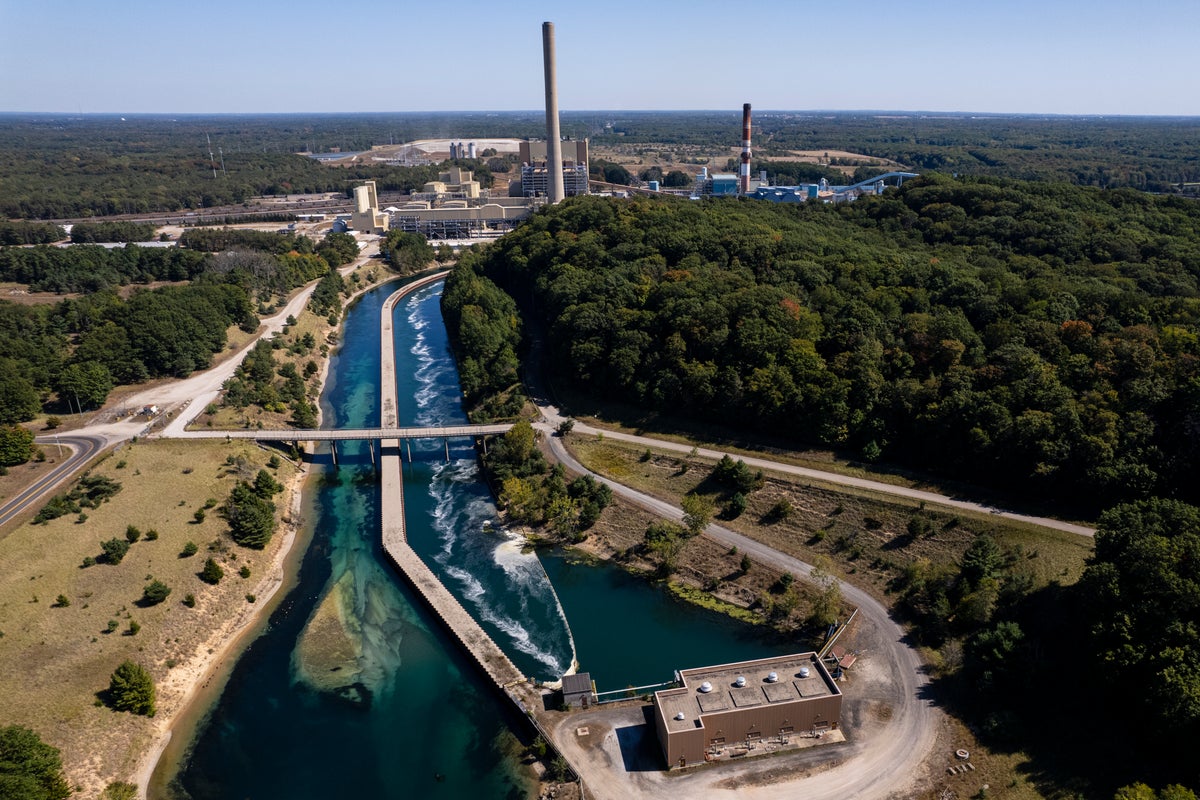President Donald Trump has issued an executive order to keep a coal-fired power plant in Michigan slated to close at the end of the month open through the end of summer.
The J.H. Campbell Plant in West Olive, Michigan was scheduled to close on May 31, but will now remain open after the Trump administration’s Department of Energy warned of a heightened risk of blackouts during the summer.
The DOE warning stressed the need for caution with “critical grid security issues” in the Midwest, particularly in advance of the “high electricity demand expected this summer.”
As annual temperatures continue to climb due to human driven climate change via the burning of fossil fuels, energy demands to power air conditioning and refrigeration have also increased.
“Today’s emergency order ensures that Michiganders and the greater Midwest region do not lose critical power generation capability as summer begins and electricity demand regularly reach high levels,” Energy Secretary Chris Wright said in a press release on Friday.
He said the Trump administration would not “sit back and allow dangerous energy subtraction policies threaten the resiliency of our grid and raise electricity prices on American families.”
The DOE’s warning comes in response to a report by the North American Electric Reliability Corporation that found the part of the country serviced by Midcontinent Independent System Operator — an electric grid operator for the central U.S. — is at an “elevated risk of operating reserve shortfalls during periods of high demand.”
That report specifically points to the scheduled closing of some power plants as a major contributing factor to the potential energy shortfalls and increased risk of power loss, The Hill reports.
While Wright insists that keeping the plant open will help keep energy prices from rising for Americans, Dan Scripps, the chair of the Michigan Public Service Commission, argued that the executive order was “unnecessary” and would “increase the cost of power for homes and businesses in Michigan and across the Midwest.”
“Michigan is proud of its robust approach to resource planning which balances reliability and affordability. We currently produce more energy in Michigan than needed. As a result, there is no existing energy emergency in either Michigan or MISO,” Scripps said in a statement.
He said that the MSPC will continue to “work with MISO and Consumers Energy to assess the impacts of the DOE’s order and work to limit unnecessary cost increases imposed as a result of this order.”
A Consumers Energy spokesperson said in a statement that it plans to “comply with the Department of Energy order.”
“We are pausing decommissioning activities at the Campbell plant and will operate it in compliance with the order, working in conjunction with MISO. The company is actively working to determine appropriate cost recovery consistent with applicable law and the federal order,” the spokesperson told The Hill.
The executive order falls in line with Trump’s previously stated support of coal burning as a primary energy source for the U.S. power grid. In April, he signed another executive order ramping up U.S. coal production.
“I call it beautiful, clean coal,” Trump said at the time. “We’re ending Joe Biden’s war on beautiful, clean coal, once and for all.”
His insistence on using coal has drawn the ire of climate change experts and environmentalists who warn that coal power will only harm Americans in the long run.
Gina McCarthy, a former head of the Environmental Protection Administration, previously told The Independent that “there is no such thing as clean coal.
“Just as Trump’s tariffs are hitting Americans’ wallets, his administration is wasting taxpayer dollars to prop up an expensive, dangerous, and dirty industry when we have abundant, cheaper, better, and safer clean energy,” she said.
Environmental experts have also called the Trump administration’s plan to remove the caps on greenhouse gas emissions at power plants “deeply concerning.”
The Environmental Protection Agency is drafting a plan to end all limits on greenhouse gases emitted by coal and gas-fired power plants, The New York Times reported this week.
The agency argues that the greenhouse gases emitted by these plants “do not contribute significantly to dangerous pollution,” according to a draft plan reviewed by the newspaper.
However, fossil fuels are the “single largest industrial source of climate destabilizing carbon dioxide in the U.S.,” according to Vickie Patton, general counsel for the Environmental Defense Fund. The United States is one of the world’s top greenhouse gas producers —second only to China.
The new rule is “an abuse of the E.P.A.’s responsibility under the law,” Patton said.

